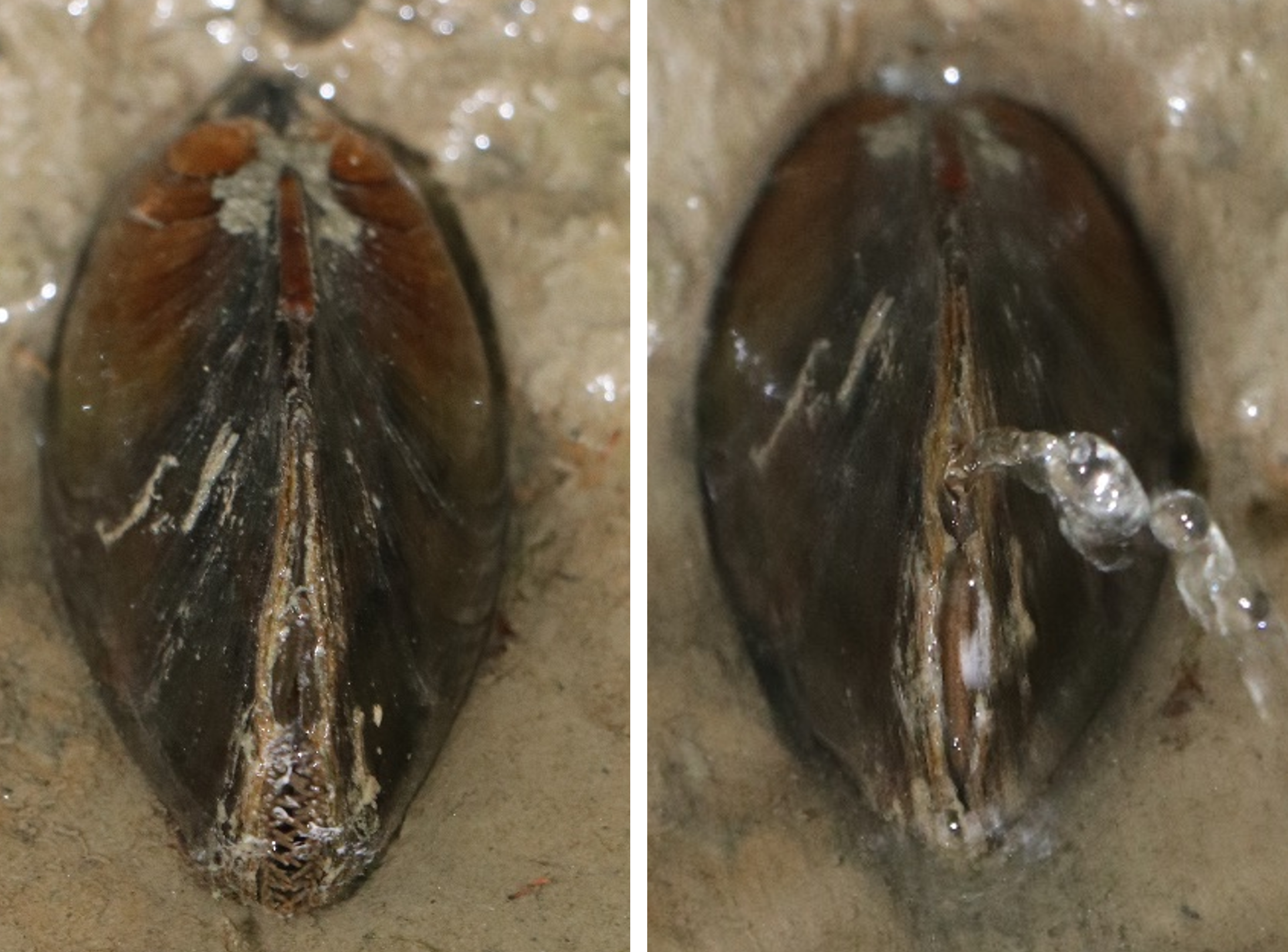The thick-shelled river mussel (Unio crassus) has been observed doing something that scientists have never seen before. Incredible footage captured by an international team, led by Professor David Aldridge of the University of Cambridge, shows a female mussel squirting a jet of water through the air and back into the river where these mollusks make their home.
The spurted water jets could reach distances of up to a meter (3.3 feet), and the behavior was observed in cycles lasting between three and six hours.
Female mussels in the Biała Tarnowska River, Poland, were seen anchoring themselves at the water’s edge with their back ends raised out of the river, before commencing their squirting cycles.
“Who’d have thought that a mussel, that doesn’t even have a head or a brain, knows to move to the river margin and squirt jets of water back into the river during springtime?” enthused Professor Aldridge in a statement. “It’s amazing!”
Anecdotal reports of this squirting behavior date back as far as 1913, but the reasons behind it remained a mystery. This new study was the first to analyze the phenomenon in such detail, and the researchers think they now have the answers.
Samples of squirted water were collected and found to contain U. crassus larvae. In order to complete their life cycle, the larvae need to attach themselves to the gills of host fishes. Turning themselves into the bivalve version of a super-soaker seems to provide a dual benefit for these mussels: disturbing the water in this way attracts host fish to the area, and squirting their larvae into the air instead of directly into the water allows them to travel greater distances.

An aerial shot capturing a mussel before (left) and during (right) a squirting cycle. Image credit: University of Cambridge
U. crassus has a limited number of host fish species, so it’s imperative that the parent mussels give their larvae the best possible chance of latching on to the right fish. Situating themselves out of the water accomplishes this, but it’s not without risk. The squirting females are placing themselves in a more vulnerable position, where they could be at risk from floods, river margin degradation, and predators like mink. This could help explain why U. crassus is an endangered species.
Understanding quirky life strategies like these is key as conservationists seek to protect species that could be at greater risk from anthropogenic climate change. As the team concludes in their paper: “The interplay between animal behavior and global change deserves closer attention not only for freshwater mussels but also for wider conservation initiatives.”
The study is published in the journal Ecology.
Source Link: Watch This Endangered Mussel Squirting Like A Water Pistol